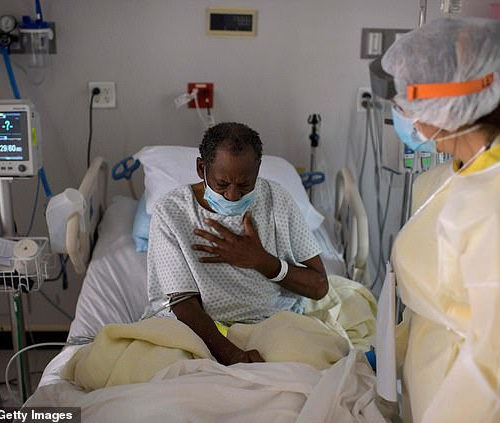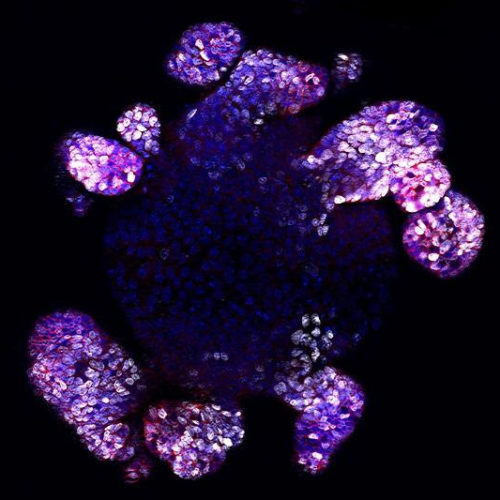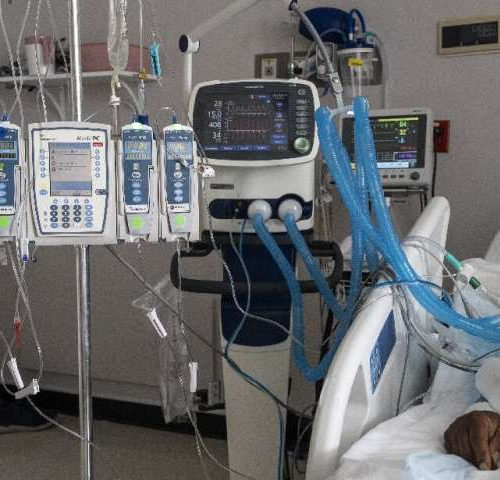by Massachusetts Eye and Ear Infirmary In a new study of human ear tissues, hearing scientists have demonstrated that age-related hearing loss, also called presbycusis, is mainly caused by damage to hair cells, the sensory cells in the inner ear that transform sound-induced vibrations into the electrical signals that are relayed to the brain by...
Study shows highly reproducible sex differences in aspects of human brain anatomy
by National Institutes of Health A scientific analysis of more than 2,000 brain scans found evidence for highly reproducible sex differences in the volume of certain regions in the human brain. This pattern of sex-based differences in brain volume corresponds with patterns of sex-chromosome gene expression observed in postmortem samples from the brain’s cortex, suggesting...
Scientists identify a new drug target for dry age-related macular degeneration
by Sanford Burnham Prebys Medical Discovery Institute Francesca Marassi, Ph.D., director of the Cancer, Molecules and Structures Program at Sanford Burnham Prebys Medical Discovery Institute and senior author of the study Credit: Sanford Burnham Prebys Medical Discovery Institute Scientists at Sanford Burnham Prebys Medical Discovery Institute have shown that the blood protein vitronectin is a...
Taking cholesterol-lowering drug could reduce severity of coronavirus to the level of the common cold, study claims
By HARRIET ALEXANDER FOR DAILYMAIL.COM Cholesterol-lowering drug Fenofibrate (Tricor) is providing a glimmer of hope Scientists in New York and Jerusalem believe the drug could help treat COVID The drug could reduce symptoms so that COVID-19 is no worse than a common cold, the study found Two scientists researching a potential treatment for coronavirus believe...
Exhaled biomarkers can reveal lung disease
Specialized nanoparticles create a ‘breath signal’ that could be used to diagnose pneumonia and other infectious or genetic diseases MASSACHUSETTS INSTITUTE OF TECHNOLOGY CAMBRIDGE, MA — Using specialized nanoparticles, MIT engineers have developed a way to monitor pneumonia or other lung diseases by analyzing the breath exhaled by the patient. In a study of mice,...
How to repair your gut
MONASH UNIVERSITY FLUORESCENT PICTURE OF AN INTESTINAL ORGANOID (STAINED FOR THE PROLIFERATION MARKER KI-67 (WHITE), THE STEM CELL MARKER EPHB2 (RED) AND DNA (BLUE). view more CREDIT: (C) MONASH BDI In a world first, Monash University researchers have identified a key biomolecule that enhances the repair of your gut lining by prompting stem cells to...
How immune cells activate the killer mode
UNIVERSITY OF FREIBURG FROM LEFT: SUSANA MINGUET, WOLFGANG SCHAMEL, FREDERIKE HARTL. view more CREDIT: PHOTO: LAURENZ HERR, ANJA SCHWÄBLE Unraveling a key motif: The T lymphocytes of the immune system work to destroy infected cells or cancer cells. To do so, they have to identify the threat: Molecules perceived as foreign – so-called antigens –...
Study shows genetic markers are useful in predicting osteoporotic fracture risk
Findings hold potential for cost savings while improving efficiency of screening HEBREW SENIORLIFE HINDA AND ARTHUR MARCUS INSTITUTE FOR AGING RESEARCH A new study shows that genetic pre-screening could reduce the number of screening tests needed to identify individuals at risk for osteoporotic fractures. Douglas P. Kiel, M.D., M.P.H.,director of the Musculoskeletal Research Center in...
Restoring mobility by identifying the neurons that make it possible
ECOLE POLYTECHNIQUE FÉDÉRALE DE LAUSANNE Researchers at EPFL are able to get paralyzed rodents walking again by stimulating the animals’ damaged spinal cords. This promising treatment has already helped paraplegics regain mobility during clinical trials at Lausanne University Hospital (CHUV). Now, using artificial intelligence, the researchers can pinpoint which neurons are involved in the gait...
‘Breakthrough’ treatment slashes virus death risk: study
An aerosol-based drug treatment could drastically reduce the number of new coronavirus patients dying from the disease or requiring intensive care, according to preliminary results released Monday by a British biotech firm. In a randomised trial of 100 patients admitted to hospital with COVID-19, those who received an inhaled formula of the protein interferon beta...






